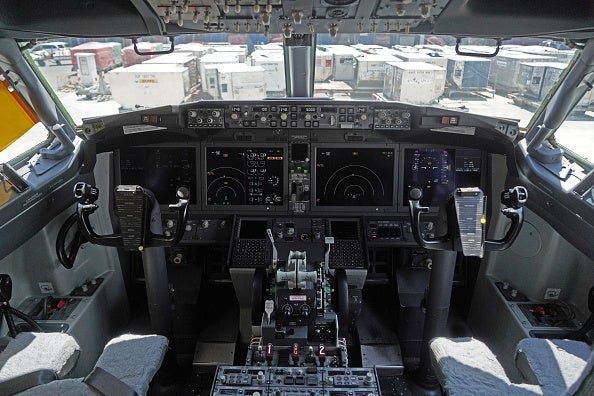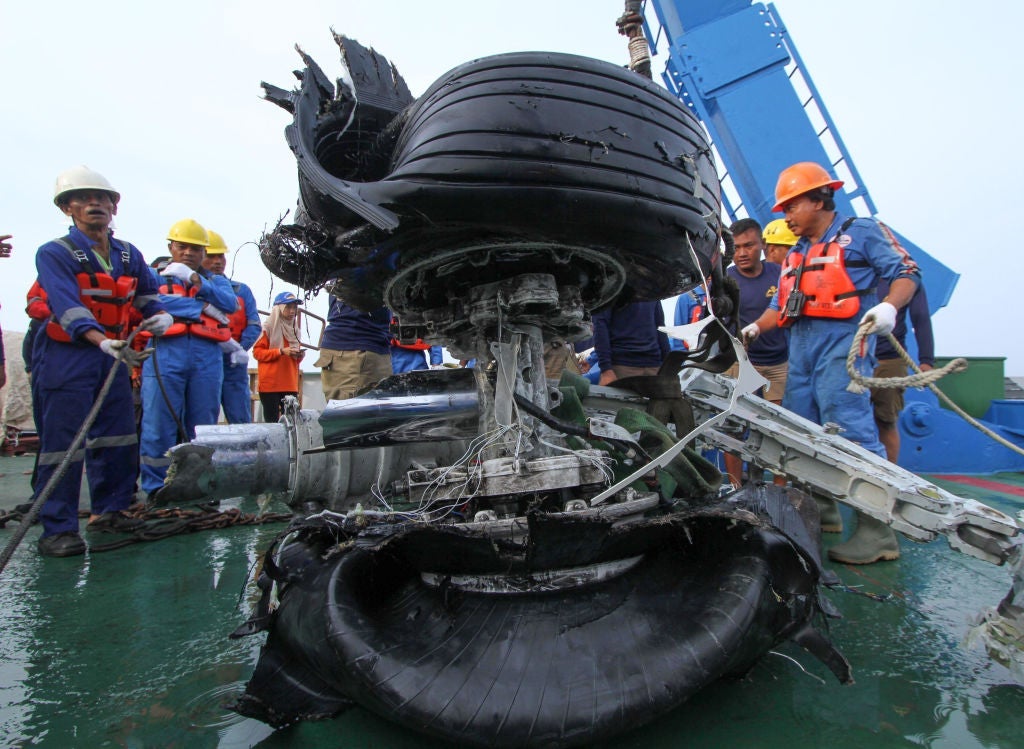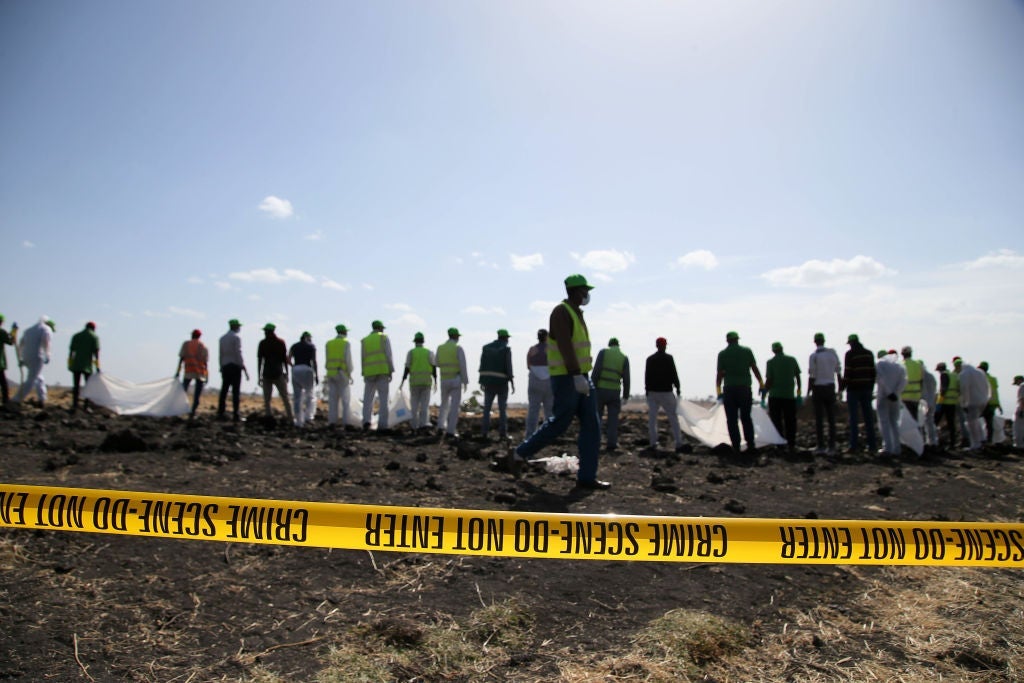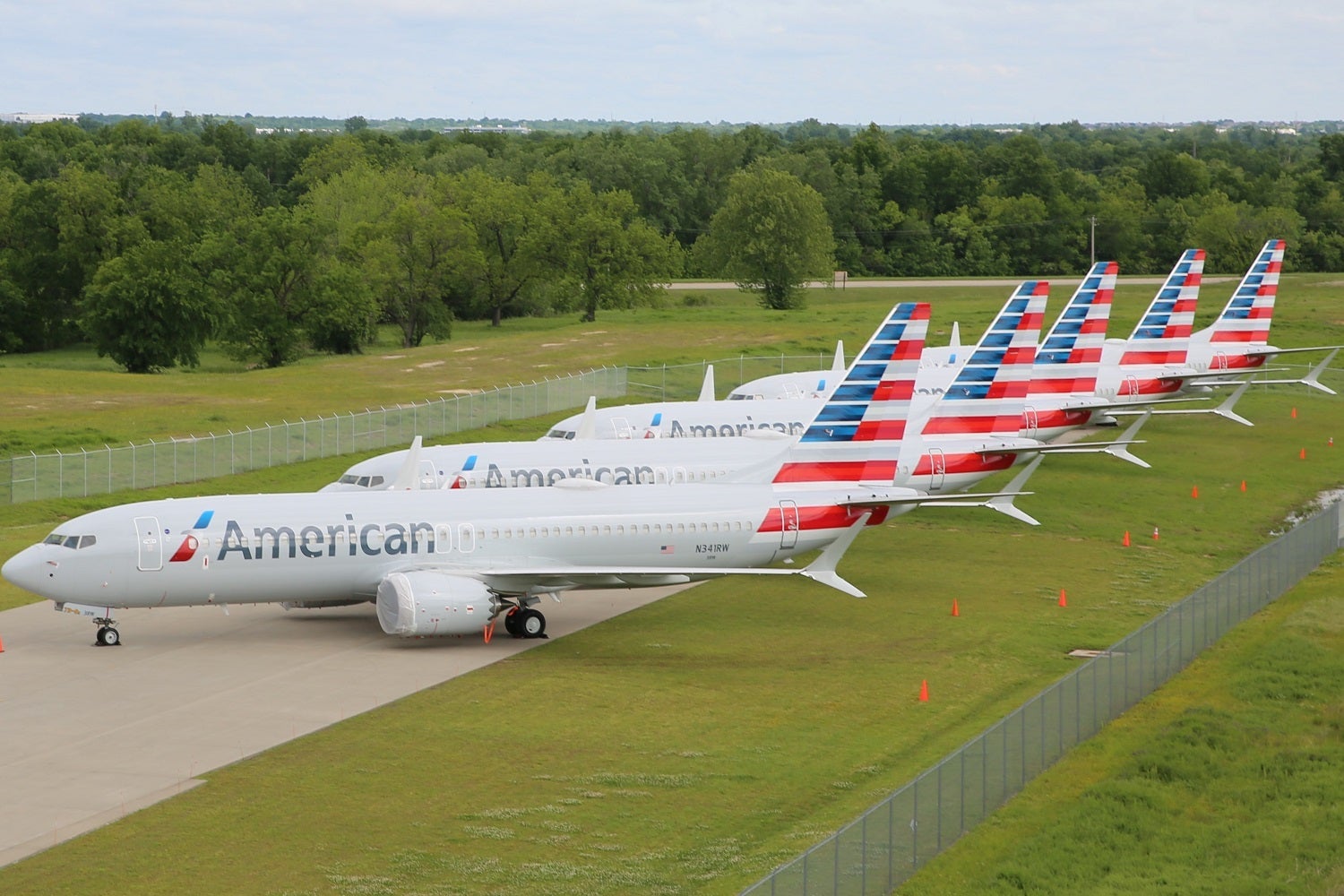The 737 MAX mess: A timeline of how we got here
The epic run of bad news for the troubled Boeing 737 MAX aircraft continues.
On Friday, Reuters and the New York Times reported that a Boeing pilot found problems with a critical flight system two years before a pair of fatal crashes forced a worldwide grounding of the Boeing 737 MAX.
346 people died in the October 2018 crash of Lion Air Flight 610 and the March 2019 crash of Ethiopian Airlines Flight 302. Investigators have linked both tragedies to the 737 MAX's Maneuvering Characteristics Augmentation System (MCAS), Boeing's new anti-stall system that reportedly malfunctioned and forced down the noses of the doomed planes.
In the 2016 text messages Reuters and the New York Times quoted Friday, a Boeing test pilot complained about the MCAS. He wrote the system was "running rampant" in a flight simulator session and called the problem "egregious."

Boeing had long claimed that it didn't know the system was unsafe, so the revelations touched off a round of fresh criticism aimed at the aerospace giant.
"This is the smoking gun," Rep. Peter DeFazio told the New York Times.
In response to the controversy Friday, Boeing released the following statement to The Points Guy:
"Yesterday, we brought to the attention of the Department of Transportation a document containing statements by a former Boeing employee. Earlier this year, Boeing produced this same document to the appropriate investigating authority. Boeing has also been voluntarily cooperating with the House Transportation & Infrastructure Committee's investigation into the 737 MAX. As part of that cooperation, today we brought that document to the Committee's attention as well. We will continue to cooperate with the Committee, and all other authorities, as they move forward with their investigations."
Since the deadly crashes, Boeing has been working to fix the 737 MAX's problems. Meanwhile, the US carriers that had purchased the planes — Southwest (which was operating 34 of the notorious Boeing 737 MAX 8s), American Airlines (24), and United (which had been flying 14 of the larger MAX 9s) — remain in limbo.
Despite the airlines' confidence, Friday's bombshell report adds yet another twist to the troubled saga of the Boeing 737 MAX. Here's a look back at how we got here:

August 30, 2011
Boeing announces plans for a newly engineered version of its popular 737. "The re-engined 737 will allow Boeing to continue to deliver the most fuel efficient, most capable airplane with the lowest operating costs in the single-aisle market," Boeing Commercial Airplanes' then-President and CEO Jim Albaugh says in a press release.
Dec. 13, 2011
Southwest Airlines becomes the first airline to finalize an order for the 737 MAX, announcing an order for 150 of them. Other US-based carriers follow suit, including United in July of 2012 and American Airlines in 2013. The 737 MAX become the fastest-selling airplane in Boeing history.
January 29, 2016
The 737 MAX takes its first flight. "It flew beautifully," said Boeing's chief test pilot according to the Seattle Times. "We had no issues."
November 2016
Boeing pilot Mark Forkner, who was working on the development of the MAX 737, sends text messages to a colleague complaining about the plane's MCAS. The text messages would not be revealed publicly until October of 2019.
March 8, 2017
Boeing announces FAA certification of the 737 MAX 8
May 2017
Boeing temporarily stops test flights of the 737 MAX, citing engine trouble. The delay is temporary, however; days later, Malaysia-based Malindo Air becomes the first airline to take delivery of the new plane.
August 2017
Southwest becomes the first US airline to receive a Boeing 737 MAX.
September 2017
American Airlines gets its first 737 MAX.
October 1, 2017
Southwest Airlines takes its new Boeing 737 MAX 8 to the skies, making it the first US carrier to operate the new plane. The debut does not go well. With TPG's Emily McNutt (as well as Southwest's CEO) on board, mechanical problems force the airline to cancel the second of the day's three planned flights.
October 29, 2018
Just over a year after the 737 MAX's US debut, Lion Air Flight 610, a 737 MAX 8, crashes into the Java Sea off the Indonesian Coast shortly after takeoff from Jakarta's Soekarno-Hatta International Airport. All 189 passengers and crew on board were killed. In a statement released after the tragedy, Boeing offers condolences to the victims' families and assures flyers "that the 737 MAX is as safe as any airplane that has ever flown the skies."

November 5, 2018
Investigators looking into the crash reveal that the airspeed indicator aboard the doomed Lion Air plane had malfunctioned on the jet's four previous flights.
November 6, 2018
A little more than a week after the crash, Boeing issues a safety message to operators of all 200 of the 737 MAX aircraft in service. The statement advises crews how to respond to erroneous input from an AOA (Angle of Attack) sensor — a key component in MCAS. US pilots quickly complain that this is the first they're hearing of the new MCAS, and its risks. The month ends with Indonesian investigators releasing a preliminary report into the crash. While the report does not assign a specific cause to the accident, it does allege that previous mechanical issues with the plane weren't adequately repaired.
March 10, 2019
Another Boeing 737 MAX 8 crashes shortly after takeoff. Ethiopian Airlines Flight 302 bound for Jomo Kenyatta International Airport in Nairobi, Kenya went down soon after taking off from Addis Ababa Bole International Airport in Ethiopia. All 157 people on board were killed. Almost immediately, countries around the world start grounding the Boing 737 MAX, including Australia, Singapore, Germany, Ireland, Malaysia, and the UK. One notable holdout: the United States.

March 13, 2019
The United States grounds all Boing 737 MAX planes. TPG estimates the grounding affects 350,000 seats per week on US airlines. The action forces carriers to cancel numerous flights they'd scheduled for the aircraft.
March 19, 2019
The Department of Transportation announces an audit of the process that led the FAA to certify the Boeing 737 MAX 8. Critics have charged that the FAA and Boeing rushed the 737 MAX to market in a race with Europe's competing Airbus A320neo.
April 2019
American and Southwest extend their 737 MAX flight cancellations through the busy summer travel season. United later follows suit.
June 2019
The FAA identifies another software issue with the now-grounded 737 MAX.
July 3, 2019
Boeing pledges $100 Million to aid families, municipalities and local organizations affected by the two deadly crashes of the 737 MAX. "We at Boeing are sorry for the tragic loss of lives in both of these accidents and these lives lost will continue to weigh heavily on our hearts and on our minds for years to come," Boeing chairman, president and CEO Dennis Muilenburg says in a statement. "The families and loved ones of those on board have our deepest sympathies, and we hope this initial outreach can help bring them comfort."
July 2019
United, Southwest and American extend their Boeing 737 MAX flight cancellations through November (Southwest later announces it'll be canceling flights through the 2019 holiday season). The massive flight disruptions wreak havoc on the airlines' bottom lines; American Airlines reports that it shrank for the first time since its merger with US Airways seven years earlier.
October 2019
United and American announced that, despite their hopes for getting the 737 MAX planes back in the air in time for the holiday season, they will join Southwest in keeping the planes off their schedules through the end of 2019. Thousands more flights will be canceled as a result.
"Southwest Airlines continues to await guidance from Boeing and the Federal Aviation Administration (FAA) on the impending 737 MAX software enhancements and training requirements," Southwest told TPG. "We are encouraged by the proposed path forward for returning the aircraft to service, and we remain confident that, once certified by the FAA, the enhancements will support the safe operation of the MAX."
Despite that confidence, there are no guarantees about 2020 either. During a CNBC interview, United Airlines CEO Oscar Munoz was asked if he's confident their 737 MAX planes will be flying again in January, as the airlines are currently projecting. Munoz's response: "No one knows."
On October 12, Boeing removed its CEO Dennis Muilenburg from his role as chairman, a move widely seen as a response to the 737 MAX crisis.
Then on October 18, reports surfaced showing that a Boeing pilot found issues with the flight system that would bring down two Boeing 737 MAX aircraft two years before the first crash. The pilot, Mark Forkner, said in text messages that the MCAS on the MAX was "running rampant" in simulator flight tests of the aircraft. He called the issue "egregious" in the messages to a colleague in November 2016.
Sign up for the free daily TPG newsletter for more travel tips!
TPG featured card
at Capital One's secure site
Terms & restrictions apply. See rates & fees.
| 5X miles | Earn 5X miles on hotels, vacation rentals and rental cars booked through Capital One Travel |
| 2X miles | Earn unlimited 2X miles on every purchase, every day |
Pros
- Stellar welcome offer of 75,000 miles after spending $4,000 on purchases in the first three months from account opening. Plus, a $250 Capital One Travel credit to use in your first cardholder year upon account opening.
- You'll earn 2 miles per dollar on every purchase, which means you won't have to worry about memorizing bonus categories
- Rewards are versatile and can be redeemed for a statement credit or transferred to Capital One’s transfer partners
Cons
- Highest bonus-earning categories only on travel booked via Capital One Travel
- LIMITED-TIME OFFER: Enjoy $250 to use on Capital One Travel in your first cardholder year, plus earn 75,000 bonus miles once you spend $4,000 on purchases within the first 3 months from account opening - that’s equal to $1,000 in travel
- Earn unlimited 2X miles on every purchase, every day
- Earn 5X miles on hotels, vacation rentals and rental cars booked through Capital One Travel
- Miles won't expire for the life of the account and there's no limit to how many you can earn
- Receive up to a $120 credit for Global Entry or TSA PreCheck®
- Use your miles to get reimbursed for any travel purchase—or redeem by booking a trip through Capital One Travel
- Enjoy a $50 experience credit and other premium benefits with every hotel and vacation rental booked from the Lifestyle Collection
- Transfer your miles to your choice of 15+ travel loyalty programs
- Top rated mobile app

